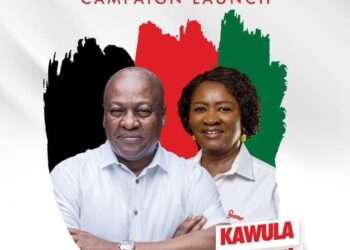General Secretary of the Ghana Agricultural Workers Union (GAWU), Edward Kareweh, has revealed that government is applying outmoded economic policies to try to develop the country.
According to him, certain policies introduced by government to supposedly increase revenue is doing the opposite. He indicated that some of these policies, which include introduction of taxes are crippling businesses and sectors of the economy.
“I think that we are applying an outmoded economic policies to try to develop ourselves. If we think that we can still go with this fixation that you can generate revenue by increasing taxes and tax the same people all the time, certainly it is telling us that it is not working. Yes, revenue will automatically come up, and it will come up when your capacity to generate the revenue is strengthened…”
Edward Kareweh
Mr Kareweh stated that when it comes to taxes, it is not just about how much government is going to tax a person that will necessarily translate into revenue, especially when the person or business does not have the capacity to contain that tax. With this, he expressed the need for government to review its economic policy as that will enable it realize that tax is “good to generate revenue, but tax should not be the first call to generate revenue”.
“It is rather to empower production to go on. Unfortunately, the figures as we received them from the Statistical Service are not giving good account of what is happening in production. All the productive areas are declining, and yet they are the very people that you are taxing.”
Edward Kareweh
Furthermore, Mr Kareweh explained that on the issue of tax compliance, it seems government is not interested in roping in those who are not paying taxes at all. This, he explained, is not how it can grow the economy.
“I think that we need a national discourse to actually fashion out appropriate economic development policy for this country. The way we are moving, I’m thinking that it is only taxes that can generate revenue we need. Of course, we are killing businesses all over. Look, we are concerned as workers in the agric sector to ensure that the companies survive. Because it is when they are able to generate revenue that we can also demand…”
Edward Kareweh
Moreover, Mr Kareweh highlighted that government’s trade policies are not aligning with its production policies. He revealed that due to this, indigenous businesses struggle to remain competitive.
“There are producers in this country, for instance rubber production – companies have invested to set up factories to produce more rubber. Now, they cannot even get the rubber as raw material. Meanwhile, we have enough rubber produced in the country which could be used to feed this industry. But another policy has come to say that you can export the rubber raw. So, people coming, are just exporting that rubber and you leave your own industry to struggle for that raw rubber to process…”
Edward Kareweh
Commenting on how this issue can be resolved, Mr Kareweh indicated that government has lost direction. With this, he indicated that even in liberalized economies, they still ensure that certain areas are not up for open competition, a situation which does not exist in the country.
“Everywhere, we just allow the imports to come in. What we need to do is to identify those areas [and] we already know them. I don’t know how we can proceed with governance without political will to do what we have to do. Taking decisions require political willpower, whether economic or whatever form it is. We need to say no, we have got our own industries we want to grow…”
Edward Kareweh
READ ALSO: It Was Very Clear IMF Program Will Not Deliver Instant Dividend – Prof Bokpin





















